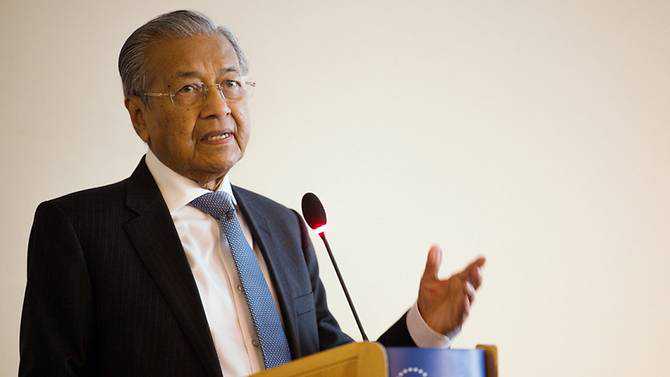Graft cases on the rise in Malaysia because people no longer fear reporting them: PM Mahathir
22 January, 2019

Prime Minister Mahathir Mohamad said on Monday (Jan 21) corruption cases are on the rise in Malaysia because whistleblowers no longer fear reporting them.
Speaking on Malaysia’s experiences in fighting corruption at the International Anti-Corruption Academy, Dr Mahathir said the Pakatan Harapan (PH) government is giving people who report corruption cases more protection under the whistleblowers act.
"When we ask the Malaysian Anti-Corruption Commission (MACC), they said surprisingly the number of cases is increasing,” he said, adding the cases are mainly linked to the previous Najib Razak administration.
He said among other efforts the government has done to fight corruption was that all ministers including himself had to declare their assets to the MACC.
In his speech, Dr Mahathir added corruption can be classified into two stages — ‘Under the Table’ and ‘Over the Table’.
“When a country is in the ‘Over the Table’ stage, this spells trouble as people voluntarily offer bribes for services rendered by government officers. This becomes a norm of that society,” he said.
“When a country is in the ‘Under the Table’ stage, there is still hope to fight corruption as people do not offer bribes voluntarily but are forced to do so to get approvals for their projects."
Since winning the general election in May 2018, the PH government has embarked on an aggressive anti-corruption campaign.
Najib faces multiple charges of money laundering, graft and breach of trust, most of them linked to state fund 1Malaysia Development Berhad. He has denied any wrongdoing.
Rosmah Mansor, wife of Najib, also faces multiple charges of corruption, receiving proceeds of illegal activities as well as failure to declare income tax. She has pleaded not guilty to the charges.
LAWS ALONE NOT ENOUGH, SAYS MAHATHIR
Dr Mahathir stated it is impossible to completely eradicate corruption.
“Laws alone are not enough,” he said.
He noted in some countries there is “total corruption from top to bottom”, while it is minimal in other places.
“These countries (with minimal corruption) have a culture that is against graft — the people are against corruption. But this attitude has to be cultivated from when a person is very young,” he added.
“If you have such a culture, then the laws (are) not very necessary.”
